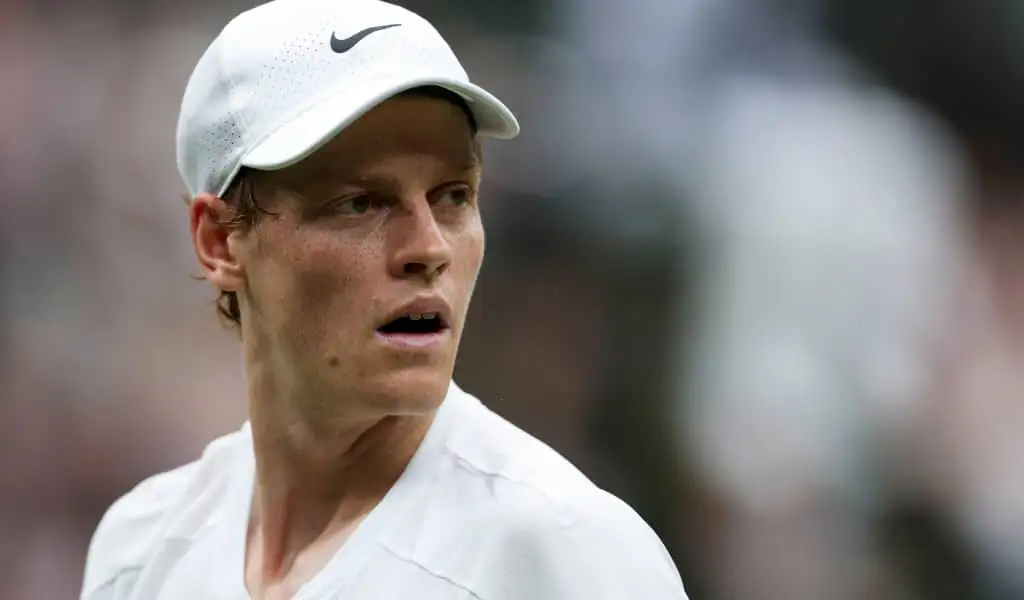Jannik Sinner has candidly shed light on how he has learned who his friends are in the aftermath of his failed anti-doping tests.
The world No 1 divulged that he has realised “a fairly large number” of players who he had thought were his friends are, in fact, not.
The International Tennis Integrity Agency (ITIA) revealed in August that Sinner had avoided a ban for failing two doping tests in March after an independent tribunal ruled he was not to blame.
The Italian tested positive for low levels of clostebol, a banned anabolic steroid, on March 10 and 18 — during and after the Indian Wells Masters.
The tribunal accepted Sinner’s explanation that the substance had entered his body when receiving a massage from his former physio, who had used a spray containing the steroid to treat a cut on his finger.
However, it has since been announced that the World Anti-Doping Agency had appealed to the Court of Arbitration for Sport, seeking to impose a ban of up to two years on the world No 1.
A statement from WADA said: “It is WADA’s view that the finding of ‘no fault or negligence’ was not correct under the applicable rules.
“WADA is seeking a period of ineligibility of between one and two years. WADA is not seeking a disqualification of any results, save that which has already been imposed by the tribunal of first instance.”
In an interview with Sky Sport Uno in Italy, Sinner spoke of how the turbulent situation has impacted his relationship with his fellow ATP players.
“I am convinced that nothing happens by chance, and perhaps this chance was precisely to understand who is your friend and who is not. And I separated these two matters,” the 23-year-old said.
“I understood that there are many players who I didn’t think were my friends, and there is a fairly large number who I thought were friends and instead they are not.
“And in the end, I don’t say that this did me any good, but it made me understand a lot of things.”
The two-time Grand Slam champion also highlighted the difficulty of the news of his failed tests emerging the week before the US Open.
“The real difficult moment in my opinion was when the news came out. And it came out in a very delicate phase because it came before a Grand Slam,” Sinner said.
“I had already wanted to train since Wednesday, the news came out on Tuesday and we decided it was better not to. We went on Thursday, in the evening, because so many people would have left.
“We got there and we had all the rooms on us, it was very hard. I looked at the other players to understand what they really thought.
“I asked myself a lot of questions, it was difficult to prepare for a Grand Slam like that.”

